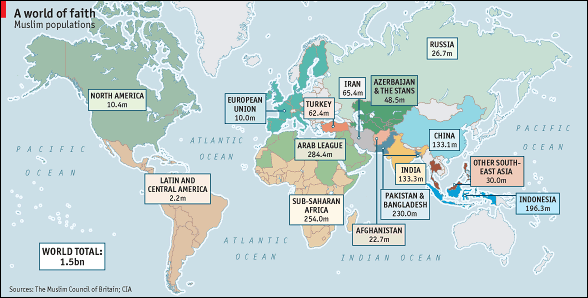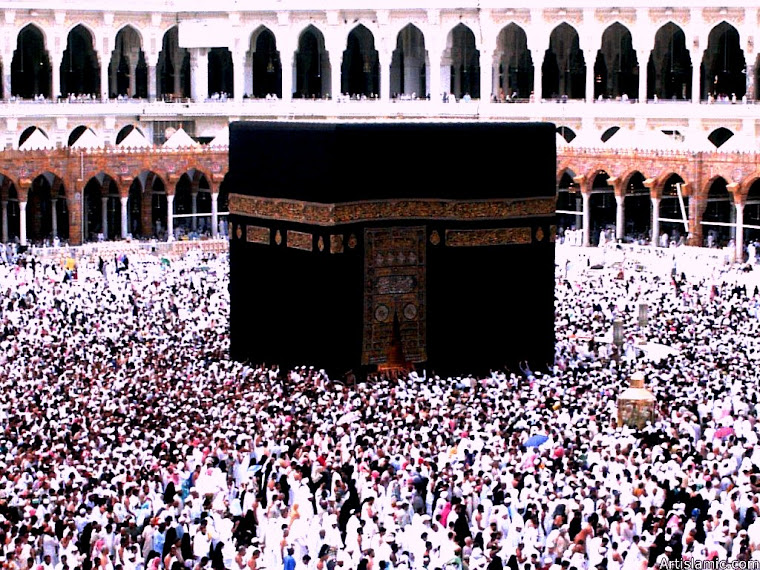Tuesday, May 27, 2008
Mini Think Piece on "A Working Peace System" by David Mitrany
Mini Think Piece on "International Regimes" by Stephen Krasner
Scrutinizing Krasner's nitty-gritty analysis on regimes and the limits of realism is very complicated one. The autonomy of regimes is derived from lags and feedback. Lags refer to situation in which the relationship between basis casual variables and regimes becomes attenuated. Regimes come to have as independent impact on outcomes and related behavior. According to Krasner, the most common formulation refers to a situation in which power and interests change, but regimes do not. Transcending to the feedback terminology which refers to processes by which established regimes alter power and interest. How this can be? Well, based on my understanding, he stipulated a more serious puzzle for conventional ratiocination that has four mechanisms. First, regimes may alter actors' calculations of how to maximize their interest. The game-theoretic and microeconomic analyses of Stein and Keohane suggest that the existence of regimes can alter calculations of interest by changing “incentives and opportunities.” Second, regimes may alter interests themselves that would led to their creations in the first place by increasing transactions flows, facilitating knowledge and understanding, and creating property rights. Third, regimes may become a source of power to which actors can appeal. The underlying resources of the actors are not changed but then ability to influence behavior is enhanced, or circumscribed by the principles, norms, rules, and decision-making procedures of a regime. Fourth, regimes may alter the power capabilities of different actors, including state. By facilitating particular patterns of behavior, regimes can strengthen or weaken the resources of particular actors.
Many of the contributors in this book emphasized the relationship between complexity, interconnectedness, and regimes, and especially for Haas, regimes are designed to manage such complexity. They even adopted a structural realist perspective in approaching international regimes, which it is more accurately describes neorealism's focus on structure as principal determinant of the behavior of states, the principal units in the international system. But somehow knowledge and understanding can affect regimes as well as cognitive understanding.
Mini Think Piece on "Principles of International Politics" by Kenneth Waltz
He purport to present a systems theory of international politics, an explanation how patterns, arrangements of parts of a whole or structure of an international order affects the behavior of states. For Waltz, the perpetual condition of anarchy makes the international order very different from hierarchic national orders. Because states cannot appeal to any higher authority to resolve their disputes, understanding international politics writ large means we have “to conceive of an order without an orderer and of organizational effects where formal organization is lacking.” Taking a page from microeconomic theory, Waltz compares international politics to a market: The market arises out of the activities of separate units—persons and firms—whose aims and efforts are directed not toward creating order but rather toward fulfilling their own internally defined interests by whatever means they can muster. The individual unit acts for itself. From the coaction of like units emerges a structure that affects and constrains all of them. Once formed, a market becomes a force in itself, and a force that the constitutive units acting singly or in small numbers cannot control.
Waltz argues that over time a balance of power tends to recur among states, even if it is not the same states that are always powerful and even if the balance is achieved through different types of state actions. Fundamentally, “states are alike in the tasks that they face, though not in their abilities to perform them. The differences are of capability, not of function.” Balance-of-power theory “makes assumptions about the interests and motives of states, rather than explaining them. What it does explain are the constraints that confine all states,” which can generate broad predictions about how states will behave when confronted with similar situations.
Neorealism which is a label applied to structural realists or those realists who are interested in explaining state behavior under conditions of anarchy, which emphasize the importance of the structure of the international system and how this influences and constrains state behavior. However, it neglected the importance of values and norms as stressed by earlier realists such as Hans Morgenthau and E. H. Carr. In conclusion, Waltz concept of international politics can be compared to Marxism by German Karl Marx. It emphasizes the dialectal unfolding of historical states. It stresses the importance of economic and material forces and class analysis. It predicts that contradictions inherent in each historical epoch eventually lead to the rise of a new dominant class. Consequently, Waltz is concerned with elaborating a theory of how endogenous and exogenous factors at the international level of analysis explains state behavior and not conditions absorbed in one system than in another.
Mini Think Piece on "Politic Among Nations: The Struggle for Power and Peace" by Hans J. Morgenthau revised by Kenneth W. Thompson
The purpose of this book is to uncover the ‘objective truth’ of international relations through the discovery of underlying principles that can make political activity ‘knowable’ through scientific theory. It is in “Politics Among Nations” that Morgenthau makes clear on his philosophy of power and the logic of its operation in the international environment. The combination of a rational outline and the attempt to draw lessons from the historical record typify the approach of Morgenthau in “Politics Among Nations.” Morgenthau has a precise idea of the purpose of theory, which is ‘to bring order and meaning to a mass of phenomena which without it would remain disconnected and unintelligible.’ This is a revealing statement of intent by Morgenthau as it demonstrates that he is confident of his ability to uncover a method of understanding international relations by the deployment of theoretical strategies and the capacity of language to bring order to the chaos of international relations.
The theoretical space in of this book is demarcated between two political positions, liberalism and realism, cast in terms of antitheses of each other. The synthesis of utopianism and realism, so important to Carr, is left relatively unexplored by Morgenthau in this phase of his analysis of international theory, when he does so, it is generally in terms of the failures of both to provide answers to the fundamental problem of international relations, that of international conflict. In ‘The Machiavellian Utopia’ he clearly identifies the failure of existing theory, both liberal and realist. The Wilsonian vision of the League of Nations was heroic and futile, while the framers of the United Nations at Dumbarton Oaks are criticized for producing a solution less heroic, but no less futile.
The six principles of realism arise out of the initial juxtaposition of realism and liberalism in Morgenthau’s opening theoretical salvo. The battleground in this war of theories is clearly marked. On one side is liberalism, which is essentially rational and has as its aim further progress towards a moral political order. Its foundations are universally valid, abstract principles reasoned deductively from an a priori basis. It takes as its foundational assumption the essential ‘goodness’ of human nature: the failure of the social order is a failure to live up to rational standards, and the means by which to create order is through education, reform, and occasionally coercive violence. On the other side lies realism, which Morgenthau characterizes as rationally imperfect, a fault which is the result of human imperfection. The world is not composed of a single vision, but is instead composed of a multiplicity of opposing and conflicting interests. Moral principles, far from being universal, can never be fully realized and can at best attain an approximate morality based on the lesser evil rather than the greater good. Underpinning the realist world view is a form of reason based not upon the a priori but rather the uncertain and imprecise knowledge gained from historic precedent.
In what seems a peculiar decision, Morgenthau declares that it is not his intention to attempt a ‘systematic exposition’ of the political philosophy of realism, but rather to restrict his analysis of realism to the presentation of six principles ‘which have been frequently misunderstood.’ The first and most important of these principles concerns the very nature of human knowledge about political behavior. Political realism, according to Morgenthau, states that politics is governed by ‘objective’ laws that have their roots in human nature, which he claims has remained the same since the classical civilizations of India, China, and Greece first attempted to analyze them. This statement has implications with regard to the type of theory that Morgenthau is trying to create. The first of these is that the theory is based upon the assumption that human nature and the laws that are the corollary of human nature are immutable. This is necessarily a determinist argument and implies that the mode of analysis is essentially restricted to the single element of human causation and its effect on the international environment.
Throughout “Politics Among Nations,” Morgenthau cites countless examples in support of his theory of international relations, but seems unaware that this data is in fact specific, not general; one example that contradicts his theory of international politics is enough to falsify his assumptions of the ‘timelessness’ and immutability of human behavior. It is this lack of a rational outline to history that ultimately convinced him of the need to reassess as he had expressed it in “Politics Among Nations.” Morgenthau makes no effort to contextualize the writings of Thucydides, Machiavelli, Kautilya, Hobbes et al., he merely subsumes them within his concept of the notion of truth to which he subscribes.
In conclusion, Morgenthau developed a model of politics in “Politics Among Nations” which was based not upon empirical reality but was instead designed to contain this empirical reality within a rational framework. In doing so, he repeated the mistake of his liberal counterparts, albeit without their commitment to unrealistic Utopian projects. This book also paved the way, however unwittingly, for the much less reflective and more reductive neorealism, as his commitment to a human science was replaced with a theory that deploys the philosophy of science as the source of its authority. Morgenthau’s rediscovery of the real, in response to a Vietnam war that he opposed, provoked in Morgenthau a bitter realization that power and politics cannot be constrained within a rational framework. Ultimately, when forced to choose between abstraction and political reality, Morgenthau chose reality. This decision demonstrates the vitality of Morgenthau’s particular branch of realism; unlike the neorealists, who desperately cling to their theoretical frameworks in the face of all evidence to the contrary, the commitment to critique reality and theory from a series of fresh angles as empirical reality demands, suggest that Morgenthau’s ideas and attitude continue to have a significant role to play in International Relations.
A.M.Nassef
Mini Think Piece on "The Twenty Years Crisis" by Edward H. Carr
This book was in processed before World War II, thus predicting a prelude to a global war i.e. states' interests are paramount in world politics and creating a conflicting ideas between realism and idealism. One of the main points that he was trying to assess is that British academics and intellectuals were idealists neglecting power in international politics. This is due to the fact that he is regarded in official circles as “pro-Soviet,” and refused senior posts in the London School of Slavonic and East European Studies, the University of Oxford, and Kings' College, Cambridge. In this pattern, i am trying to compare Carr's personal thinking and the period he lives in, which led me to an individual level of analysis. Somehow and more frequent, his personal being affects his thinking in formulating theories as to whether it is timely or not.
Pointing out the significance of power in Carr's literary works; he forcefully assures that power is an essential ingredient in international politics. But he left unclear bases or grounds on the ontological perspective or rationale of concept of power in realism. British academics directly attacked his beliefs on the parameter of institutionalism and interdependency. John Mearsheimer of University of Chicago presented three main points of prospects of a new international order with regards to the analogy of Carr's Twenty Years Crisis: (1) Contemporary idealists will not going to transform international politics; (2) It is unwise for idealists to try to marginalized the study of traditional security issues; (3) Pluralism should foster in the broader field of international relations.
Given these three discoursed, I find the last one as contrasting view from the first and second for it promotes idealism while the first two points are trying to halt the impeccable concepts within the circle of idealism. In conclusion, this book does not actually elaborate nor expound the theory of realism but it greatly manifest the concept of power as an important parcel of world politics especially to the dominant actors which are the states. Further, it’s also a greater critique against the hegemonic course of idealism in British academics.
Mini Think Piece on "The Clash of Civilizations and the Remaking of World Order" by Samuel P. Huntington
Somehow his proposal is somewhat true but I beg to disagree that these conflicts are measured in a global level. The origin of rival claim territories of today is not usually based on cultural and religious identities of his fixed civilizations; it is also blended with socio-political and economic factors as well as international regimes, interdependency and world hegemons. Some of the indicative rival claims were Antarctica, Basque, Chechnya, Kuriles, Northern Ireland, Palestine, Sabah, Cyprus, Kashmir, Kurdistan, South China Sea, Tamil, and the permafrost of the Arctic. Many of these were in a level of interstate and regional conflicts. There is a great chance of collaboration of the Islamic and Sinic civilizations against Western civilization as it was materialized on the US invasion of Afghanistan, Iraq, the 2005 cartoon crisis, 2006 Israel-Lebanon conflict, and the ongoing Iranian nuclear crisis. The emergence of China as a world power may assert clashes with the American desire for the lack of regional hegemony in East Asia.
He believed that the Western-Islamic clash would represent the bloodiest conflicts of the early 21st century. What he didn’t perceive was that the Eastern civilizations have retained its cultural identity even if they adopted Western economic system. Modernization is pushing through for China, India, East Asian Tigers, and ASEAN. It can be seen that Huntington relies mostly on anecdotal evidence, despite more rigorous empirical studies have not shown particular increase in the frequency of inter-civilizational conflicts in the post-Cold War period. Clashes of civilizations were merely based on conflicts but its vulnerability is the essence of collaboration e.g. US and Saudi Arabia’s partnership, Turkey’s pending application to EU, and the onslaught of environmental problems such as climate change and global warming.
Mini Think Piece on "Imperialism, The Highest Stage of Capitalism" by Vladimir I. Lenin
His data and summary proved to him that imperialistic wars are absolutely inevitable under such an economic system, as long as private property is the chief means of production. He even argued that capitalism has grown into a world system of colonial oppression and financial strangulation of the overwhelming majority of the population of the world by a handful of advanced countries. Lenin’s approach to the colonized by the great powers was qualitatively different. Underpinning the definition made by Karl Kautsky on imperialism as a product of highly developed industrial capitalism. It consists in the striving of every industrial capitalist nation to bring under its control or to annex all large territories, irrespective of what nations inhabit it. This new form of imperialism is an ambition of a single growing empire motivated by similar lusts of political aggrandizement, commercial gain and dominance of investments over mercantile interests.
The economic essence of imperialism is simply monopoly capitalism it arose out of the concentration of production at a very high stage, stimulated the seizure of raw materials, has sprung from banks, and grown out of colonial policy. But what would be the last result or stage? According to Lenin, there would be a decaying or declining stage of capitalism. Yet he failed to see economic alliances and the roles of globalization even though he clairvoyantly prophesized globalization that focuses on dominance to understand world politics. This image has been materialized through the formation of World Bank, International Monetary Fund, World Trade Organization, and the like. Lenin’s consistent ideological insistence on the eventual decay and decline of capitalism blinded him to the other stages and possibilities that capitalism would develop in a measured duration of time.
Anthropogenic Global Warming: Beyond the Hype, Doing the Right Thing for the Right Reason by Dr. Perry S. Ong
Dr. Ong, a Ph. D. in Science for Behavioral Ecology and Evolutionary Biology, is the Director of the UP Institute of Biology. Ong was chosen as one of the Ten Outstanding Young Men by the Philippine Jaycees in 2000. That same year he was awarded the Outstanding Young Scientist by the National Academy of Science and Technology (NAST) for his significant contributions to the knowledge and better understanding of the diversity of Philippine wildlife which has resulted in a greater public awareness and appreciation of the importance of this biological resource in the whole ecosystem. His efforts have drawn the active participation of the academe, private sector and NGOs towards the management and conservation of protected areas, including fauna and flora, in the Philippines .
Reactors:
Prof. Felino Lansigan, UPLB
Prof. Alyssa Alampay, UPD
Date:
Wednesday, May 14, 2008 at 2PM
Venue:
NISMED Auditorium, UP Diliman, Quezon City
Other related videos:
A UK climate change TV advert
What is Climate Change?
www.WatchMojo.com presents... A quick look at what exactly Climate Change is and how its affecting our planet.
ABC World News Tonight on Climate Change
A.M.Nassef


















